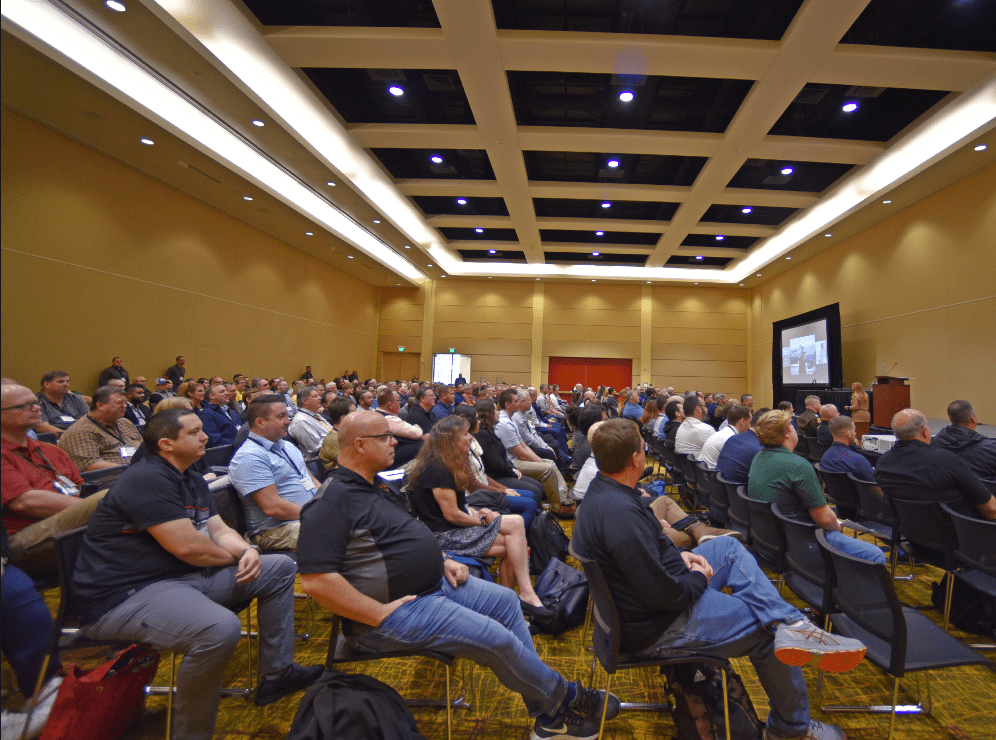
As cyber attacks and generative artificial intelligence (AI) continue to make headlines, they highlight the growing need in Wisconsin and across the country to treat cybersecurity as a strategic priority. The Wisconsin Governor’s Cybersecurity Summit in late October looked at how both the public and private sectors can expand their capabilities to protect infrastructure and government assets.
“Here in Wisconsin, we know that 21st-century technology is a part of our state’s future and our future success — it’s the key to economic development, the exchange of information, and the answer to some of the biggest issues facing our world today,” said Governor Tony Evers while attending the summit. “Cybersecurity touches every aspect of our society, from our government and infrastructure to our farming industry to our healthcare and personal communication. It is the safeguard of our most precious resources and requires an all-hands-on-deck approach.”
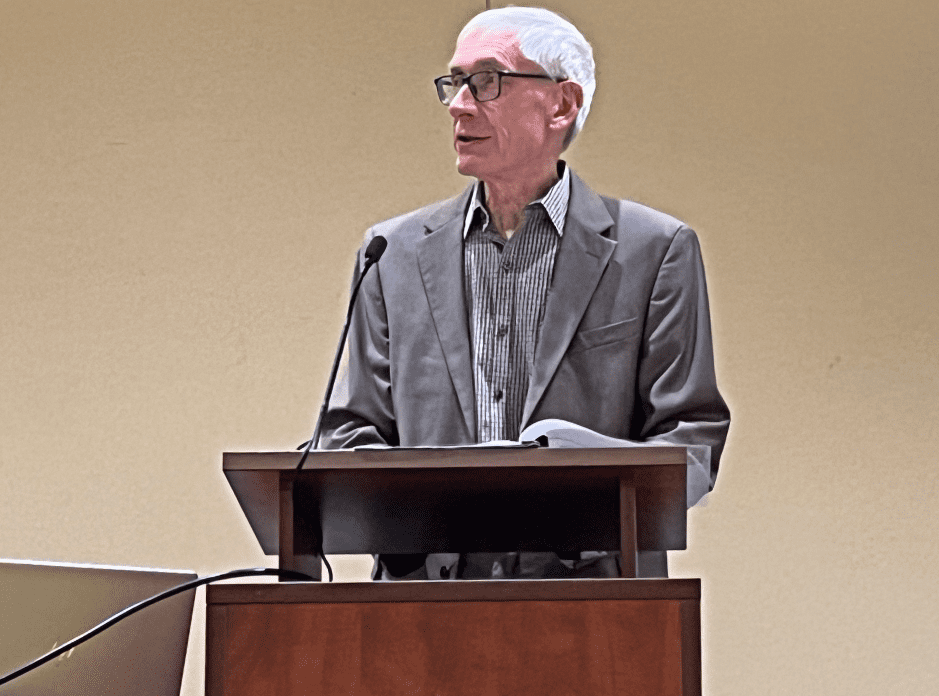
The 2023 Cybersecurity Summit was held at the KI Convention Center in Green Bay. More than 400 attendees from the private and public sectors, as well as college students, attended the summit to learn more about evolving cyber trends from nearly three dozen speakers over a three-day period.
“Cyber threats have permeated our everyday lives, from personal information breaches to large scale attacks targeting critical infrastructure,” said Maj. Gen. Paul Knapp, Wisconsin’s adjutant general and the governor’s chief cybersecurity advisor. “We need to continually seek to improve, expand, and innovate at a faster rate to keep malicious actors at bay and foster a culture of growing our cyber defenses.”
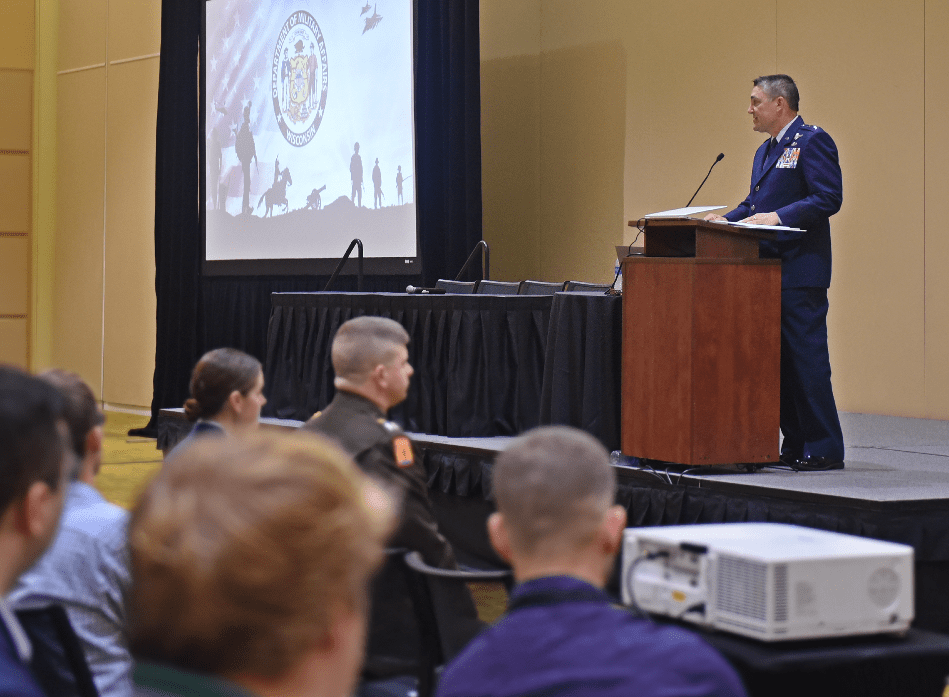
The 2023 Cybersecurity Summit was held at the KI Convention Center in Green Bay. More than 400 attendees from the private and public sectors, as well as college students, attended the summit to learn more about evolving cyber trends from nearly three dozen speakers over a three-day period.
“Cyber threats have permeated our everyday lives, from personal information breaches to large scale attacks targeting critical infrastructure,” said Maj. Gen. Paul Knapp, Wisconsin’s adjutant general and the governor’s chief cybersecurity advisor. “We need to continually seek to improve, expand, and innovate at a faster rate to keep malicious actors at bay and foster a culture of growing our cyber defenses.”
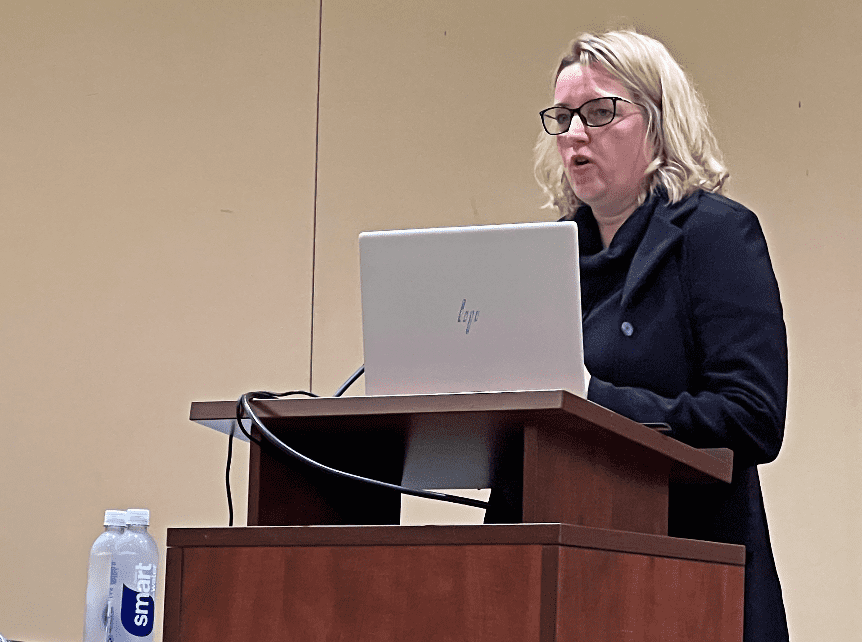
The expansion of generative AI creates new challenges on the cyber front. The technology produces new outputs from data it has been trained on, such as text, photos, algorithms, and video. One of the keynote speakers was Theresa Payton, the first female White House Chief Information Officer and was named one of the “Top 25 Most Influential People in Security” by Security Magazine. She said while it is a simple tool, it can create deepfakes that can affect personal and work lives.
“I get a lot of questions on how AI could replace people,” said Payton. “Humans are often imitated and never replicated. Humans have an essence and a brilliance that can never replace computers. It can enhance things and be a productivity gain if we do it right.”
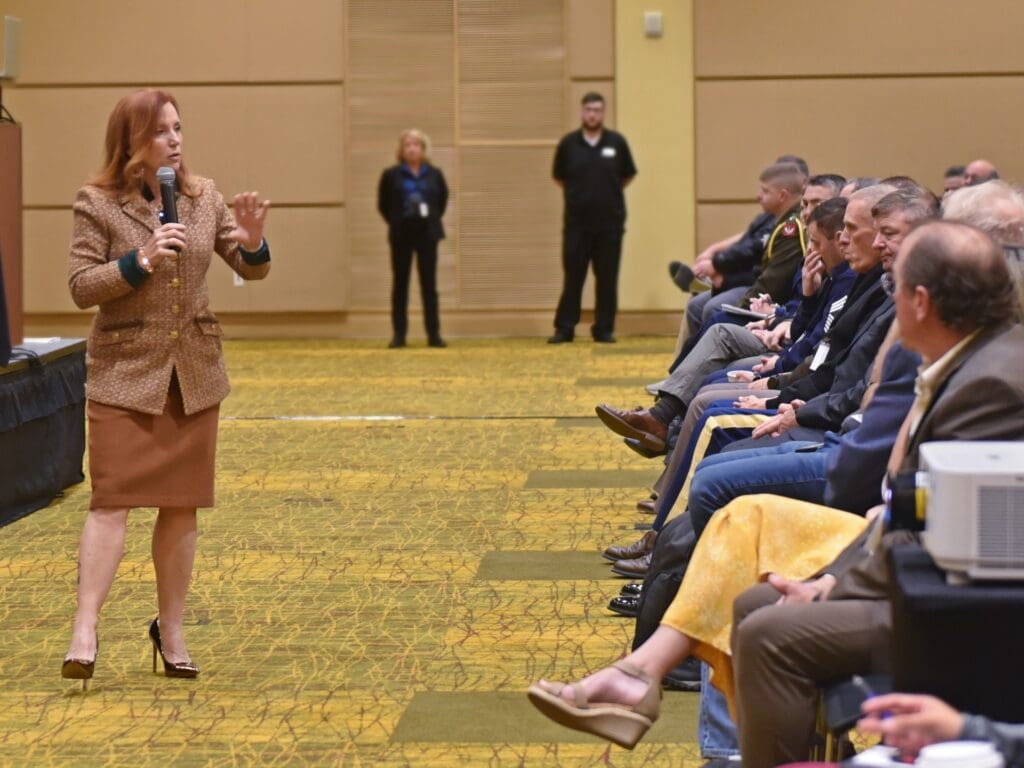
She added that cyber criminals know human nature and can design their attacks with it in mind. Payton suggested people should have multiple emails dedicated to certain things, including bank accounts, health care and social media, to easily discern fraudulent emails. She also suggested getting a burner phone number that you can give out everywhere, in order to keep your personal phone number more private.
Members of Wisconsin’s Cyber Response Team were also recognized during the summit. Eight members received meritorious service medals from Maj. Gen. Knapp, recognizing their dedication and contribution to defending public entities from cyber attacks and reducing the state’s cybersecurity risks. One of the recipients was CRT Team Lead Tim Greve. “It’s unreal receiving this medal,” said Greve. “I didn’t do this for any award out there. I do this because there is a need out there and I help fill those gaps.”
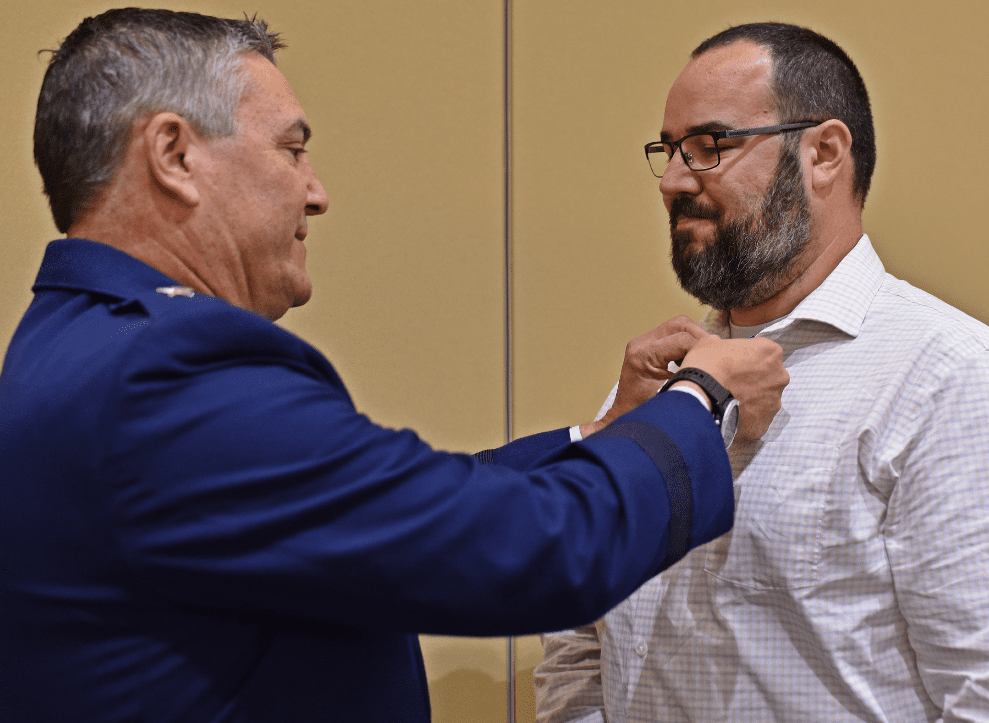
The eight medal recipients were not the only members of the CRT to be recognized at the summit. Nearly 40 other team members received certificates of appreciation from Wisconsin Emergency Management Administrator Greg Engle for their service and dedication on the voluntary team.
“It’s huge having the CRT be recognized at this event,” said Greve. “We are trying to increase our membership and awareness that we exist. If people in the public and private sectors do not know we exist, they don’t know we are available to help in their time of need.”
“There is a community of resources across Wisconsin that people can rely on and connect with,” said Zanow. “The more that we network and the more that we share stories and talk about challenges and issues, it makes us better as a whole.”
The 2023 Wisconsin Governor’s Cybersecurity Summit was coordinated by the Wisconsin Department of Military Affairs and the Wisconsin Department of Administration.

